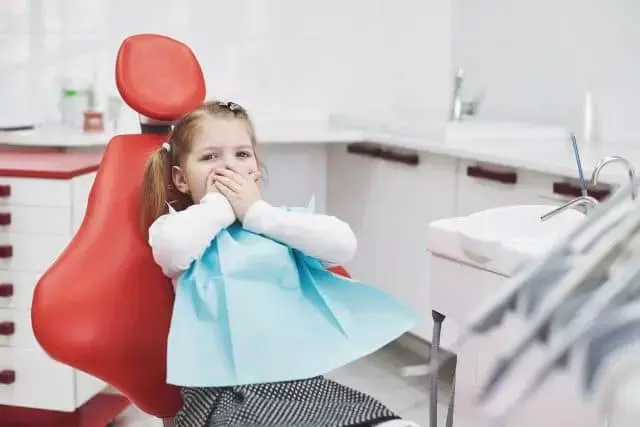- Home
- Medical news & Guidelines
- Anesthesiology
- Cardiology and CTVS
- Critical Care
- Dentistry
- Dermatology
- Diabetes and Endocrinology
- ENT
- Gastroenterology
- Medicine
- Nephrology
- Neurology
- Obstretics-Gynaecology
- Oncology
- Ophthalmology
- Orthopaedics
- Pediatrics-Neonatology
- Psychiatry
- Pulmonology
- Radiology
- Surgery
- Urology
- Laboratory Medicine
- Diet
- Nursing
- Paramedical
- Physiotherapy
- Health news
- Fact Check
- Bone Health Fact Check
- Brain Health Fact Check
- Cancer Related Fact Check
- Child Care Fact Check
- Dental and oral health fact check
- Diabetes and metabolic health fact check
- Diet and Nutrition Fact Check
- Eye and ENT Care Fact Check
- Fitness fact check
- Gut health fact check
- Heart health fact check
- Kidney health fact check
- Medical education fact check
- Men's health fact check
- Respiratory fact check
- Skin and hair care fact check
- Vaccine and Immunization fact check
- Women's health fact check
- AYUSH
- State News
- Andaman and Nicobar Islands
- Andhra Pradesh
- Arunachal Pradesh
- Assam
- Bihar
- Chandigarh
- Chattisgarh
- Dadra and Nagar Haveli
- Daman and Diu
- Delhi
- Goa
- Gujarat
- Haryana
- Himachal Pradesh
- Jammu & Kashmir
- Jharkhand
- Karnataka
- Kerala
- Ladakh
- Lakshadweep
- Madhya Pradesh
- Maharashtra
- Manipur
- Meghalaya
- Mizoram
- Nagaland
- Odisha
- Puducherry
- Punjab
- Rajasthan
- Sikkim
- Tamil Nadu
- Telangana
- Tripura
- Uttar Pradesh
- Uttrakhand
- West Bengal
- Medical Education
- Industry
Oral midazolam and intranasal dexmedetomidine combo effective for managing dental anxiety in kids

Oral midazolam and intranasal dexmedetomidine combo effective for managing dental anxiety in kids suggests a new study published in the BMC Anesthesiology.
Moderate to deep sedation is required for dental treatment of children with dental anxiety. Midazolam is the most commonly used sedative, whereas intranasal dexmedetomidine is increasingly used in pediatric sedation.
The aim of this trial was to compare the sedative efficacy of oral midazolam alone with that of intranasal dexmedetomidine plus oral midazolam during dental treatment of children with dental anxiety.
In total, 83 children (aged 3–12 years) scheduled to undergo dental sedation were randomized to receive oral midazolam (0.5 mg/kg) and intranasal placebo, or oral midazolam (0.5 mg/kg) plus intranasal dexmedetomidine (2 µg/kg). The primary outcome was the rate of successful sedation for dental treatment. Secondary outcomes were the onset time and adverse events during and after treatment. Data analyses involved descriptive statistics and nonparametric tests.
Results
The rate of successful sedation was significantly higher in combination group (P = 0.007), although the sedation onset time was significantly longer in combination group (17.5 ± 2.4 min) than in monotherapy group (15.7 ± 1.8) (P = 0.003). No children required medical intervention or oxygen therapy for hemodynamic disturbances, and the incidences of adverse events had no significant difference between groups (P = 0.660).
Combined treatment with oral midazolam (0.5 mg/kg) and intranasal dexmedetomidine (2 µg/kg) is more significantly effective for managing the behavior of non-cooperative children during dental treatment, compared to oral midazolam (0.5 mg/kg) alone. (Chinese Clinical Trial Registry: ChiCTR2100042300)
Reference:
Nie, J., Chen, C., Xie, J. et al. Oral midazolam vs. intranasal dexmedetomidine plus oral midazolam for sedation of pediatric outpatients: a double-blinded randomized controlled trial. BMC Anesthesiol 23, 341 (2023). https://doi.org/10.1186/s12871-023-02289-5
Keywords:
BMC Anesthesiology, Nie, J., Chen, C., Xie, J, Dental anxiety, Midazolam, Dexmedetomidine, Sedation, Pediatric dentistry
Dr. Shravani Dali has completed her BDS from Pravara institute of medical sciences, loni. Following which she extensively worked in the healthcare sector for 2+ years. She has been actively involved in writing blogs in field of health and wellness. Currently she is pursuing her Masters of public health-health administration from Tata institute of social sciences. She can be contacted at editorial@medicaldialogues.in.
Dr Kamal Kant Kohli-MBBS, DTCD- a chest specialist with more than 30 years of practice and a flair for writing clinical articles, Dr Kamal Kant Kohli joined Medical Dialogues as a Chief Editor of Medical News. Besides writing articles, as an editor, he proofreads and verifies all the medical content published on Medical Dialogues including those coming from journals, studies,medical conferences,guidelines etc. Email: drkohli@medicaldialogues.in. Contact no. 011-43720751


